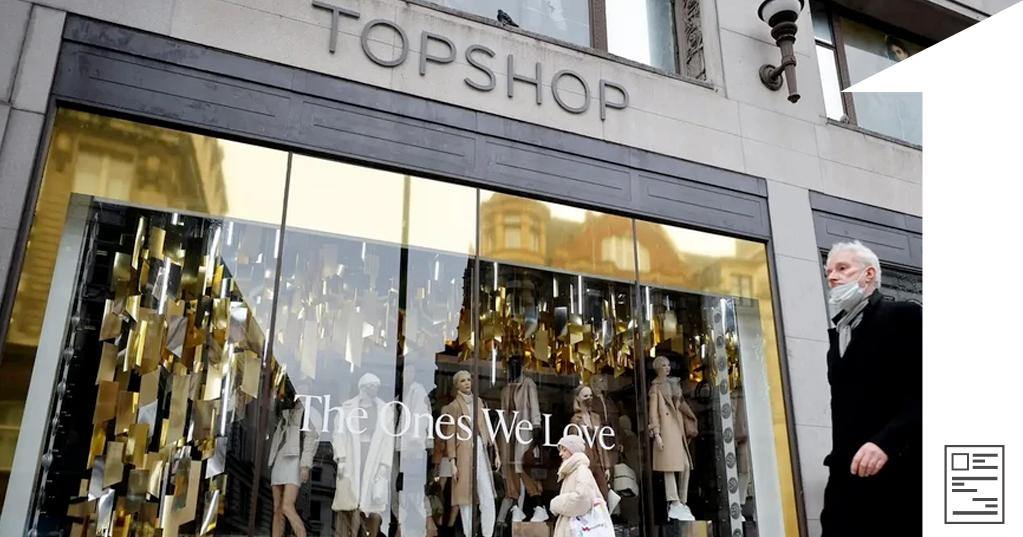LONDON (Reuters) - A rapid shift to online shopping in Britain due to COVID-19 has boosted retailers’ sales and share prices, even though footfall in high street shops remains well below pre-pandemic levels.
The half-a-trillion dollar retail industry suffered a near-fatal blow in March, when the United Kingdom enforced a lockdown to limit the spread of the virus.
But although one in 10 physical shops remain empty, meteoric gains in major online players have helped the MSCI’s UK retail index outperform the country’s benchmark FTSE 100 by a huge margin.
Graphic: MSCI UK stocks -

1/ DING DONG! YOUR FOOD’S HERE
Among the star performers are online grocery shops such as Ocado Group which have seen demand surge as British people eat at home more.
The strength of supermarkets’ online offerings have been the key determinant in how they have fared.
Ocado shares are up around 120% since the start of March, compared to small declines in traditional supermarkets such as Tesco (down around 4%) and Sainsbury’s (down 10%).
From March to May this year, the proportion of UK food sales made online shot up to 11.3%, doubling within a few months, prompting Tesco to step up hiring to cope with the exponential growth.
“The pandemic has digitised whole new sections of the population,” said Clive Black, retail analyst at Shore Capital. “Online is here to stay.”
Online shopping as a proportion of UK sales surged in March, April and May. But while online shopping for non-food products has since dipped, online grocery shopping remains elevated.
Graphic: UK food shopping stays online -

2/ PYJAMAS TO WORK
Online clothing giant ASOS is another star performer, with shares up around 70% since the start of March as people working from home loaded up on loungewear.
Fast fashion company Boohoo had been quickly recovering from an early-March lockdown dip, until its share price took a hit in July when The Sunday Times reported on dire conditions in one of its factories.
But, it soon recovered and in the 12 weeks to Aug. 25, ASOS and Boohoo grew the quickest within the apparel space and, along with JD Sports, gained market share, according to Barclays equity analysts.
Graphic: ASOS share price vs other clothing stocks -

3/ PEOPLE AND PETS AT HOME
Pent-up demand has seen a rise in spending in home improvement sectors like DIY and furnishings, said Peel Hunt’s retail analyst John Stevenson, as many people saved money during the lockdown and, stuck at home, spend more on improving their surroundings.
Kingfisher, which owns DIY store B&Q, has jumped 47% since the beginning of March, while Dunelm is up around 40%. British discount retailer B&M, was promoted to FTSE 100 after outperforming.
It’s not just furniture and decorations: Pets at Home shares shot up more than 30% in July as demand for pets during the pandemic offset the impact of fewer owners seeking its vet services. Morgan Stanley, Citigroup and Liberum have all raised their target price since then.
Tech hardware firm AO World, one of the biggest winners during the health crisis, has seen revenue surge both during lockdown and as it eased, with the share price up a colossal 187% as of Thursday.
“Fundamentally they’re probably going to end this year with 50% more active customers than they had last year and those customers aren’t suddenly going to switch away,” Peel Hunt’s Stevenson said.
Graphic: Home furnishings stocks -

4/ KABOOM! RETAIL SALES EXPLODE
To be sure, the lockdown beneficiaries aren’t relying on people re-furnishing their home offices every quarter in order to maintain their success.
“No one’s realistically expecting their sales to keep on growing at those crazy rates,” said CMC Capital Markets analyst David Madden.
But in a world of ultra-low interest rates, there are fewer attractive options for investors quitting airline and travel stocks, he said.
Graphic: UK retail sales rebound -














